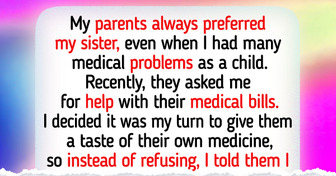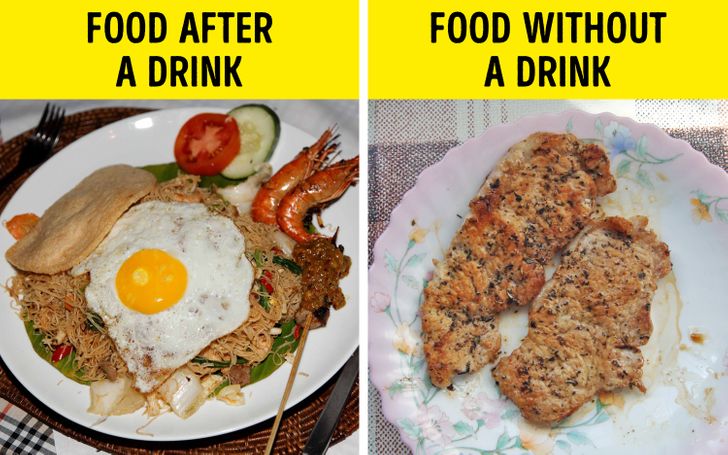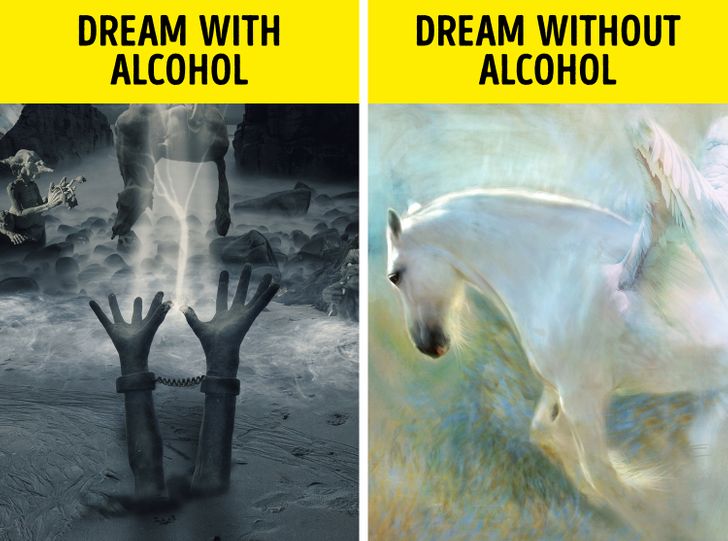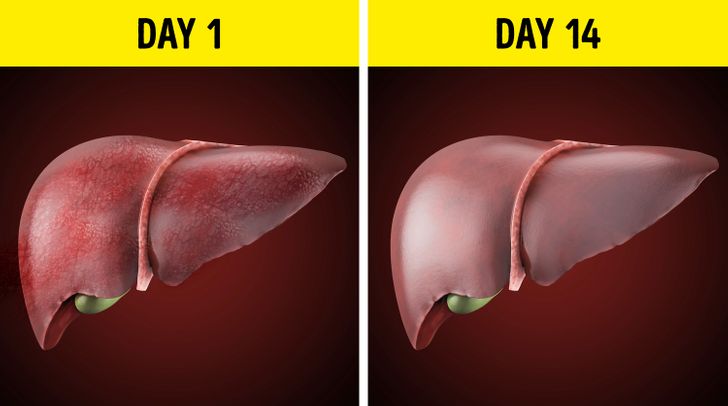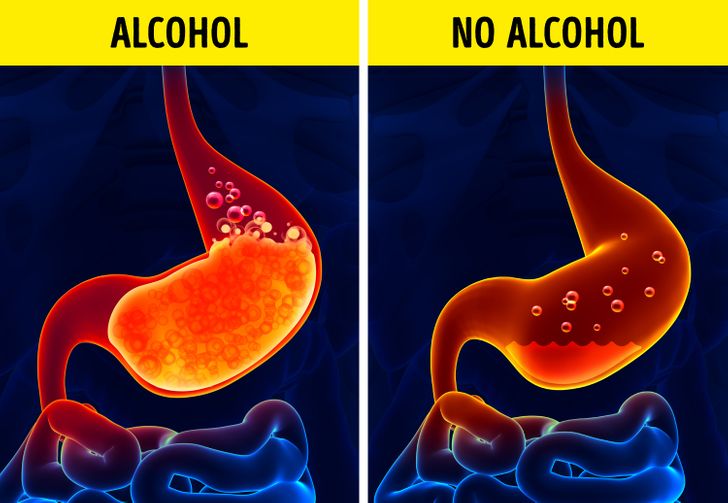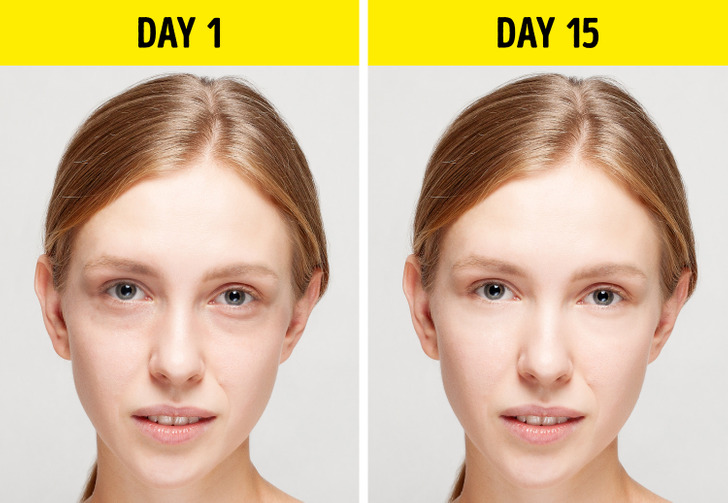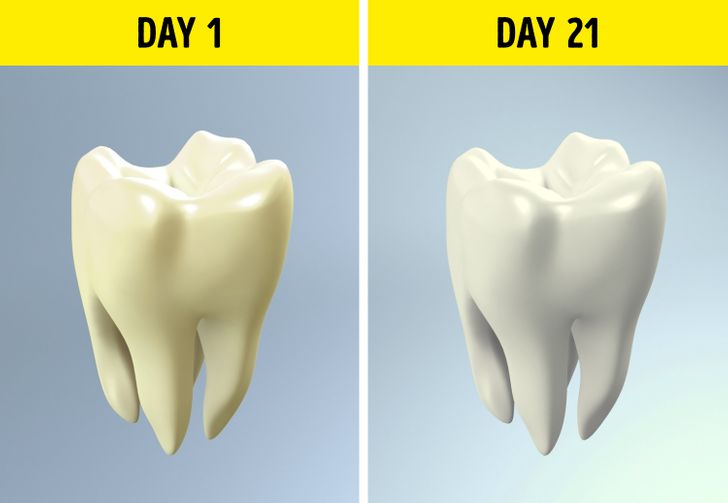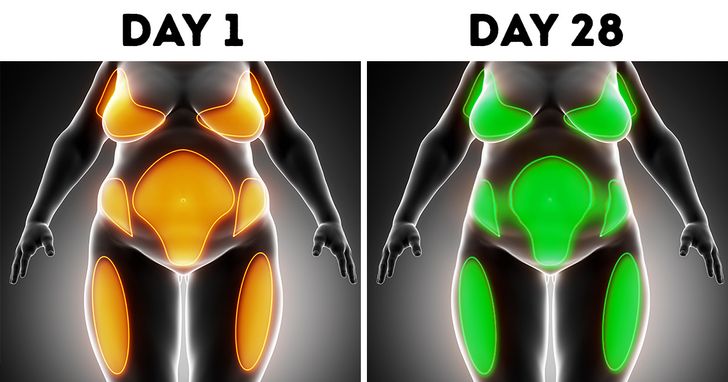A lot of you say I am against drinking alcohol but it is a sickness that many fight every day.
What Happens to Your Body When You Give Up Alcohol
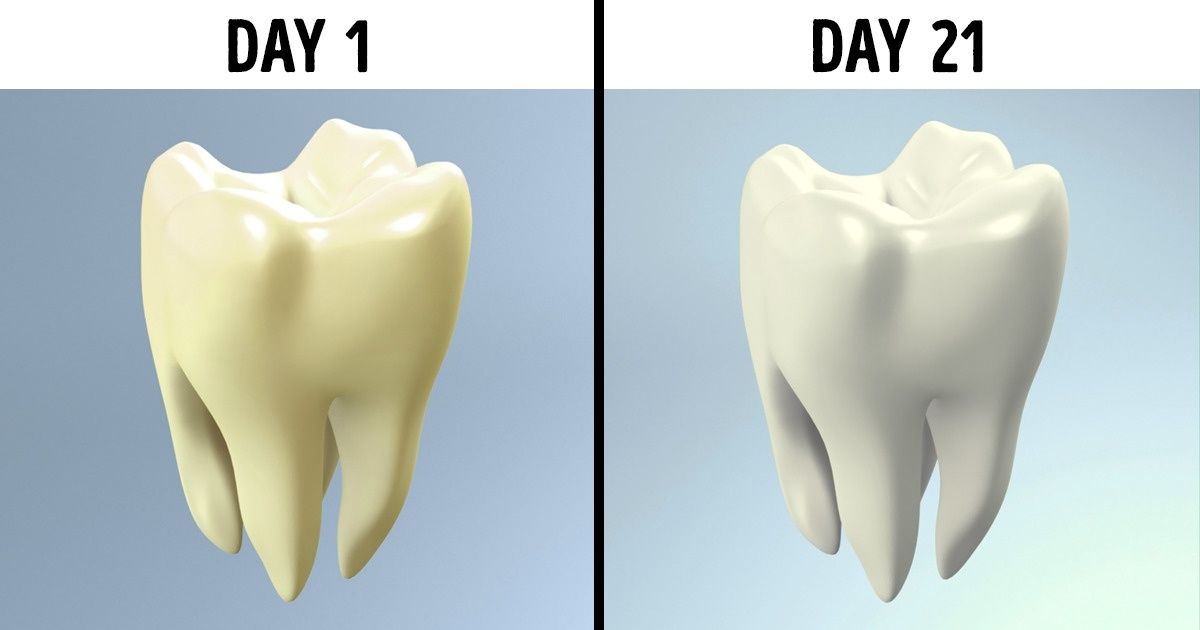
An ordinary person with an average income drinks about 9.5 liters of alcohol a year, according to statistics. And this person is not addicted to alcohol — they just like to spend time with their friends and have a few drinks. Sometimes they take a break during the week and drink just a little bit, maybe having one glass of wine before bed to relieve stress. What would happen to the body of this person if they quit drinking for 28 days?
Bright Side was interested in the experiment of several volunteers who wanted to find out if there would be any changes in their health and appearance in as little as just 4 weeks without alcohol. For the most impatient people, the answer is yes there will, and they are pretty dramatic.
Week 1
- The appetite seems to increase. In reality, people eat way more if they drink alcohol. And when they stop drinking, they instinctively want to keep their hands busy, usually with food. So, it’s best to replace food with juice and fruit after quitting drinking.
- Your craving for sweet foods may increase. Alcohol, especially the sweet kind, can increase the blood sugar levels, which could in turn create sugar cravings. But different people have different reactions and some experience a decrease in sugar levels.
- Alcohol decreases the quality of your sleep. So as you transition away from alcohol, your sleeping might improve.
Week 2
- The liver begins to recover. When people drink alcohol regularly, liver cells die and scars appear in their place. The organ can recover, but it is a very slow process. The less a person drinks, the faster their recovery will be.
- Another strong motivator may be the changes in skin color. Alcohol disrupts the blood circulation which leads to a lack of oxygen in the skin. As a result, alcohol makes the skin dry which leads to the appearance of pigment spots and early wrinkles.
- Digestion begins to improve. Alcohol increases the production of gastric acid. In other words, the stomach “eats” itself slowly. By the way, this is the reason why people eat more when they drink alcohol.
- People who experimented with quitting drinking alcohol claimed that by the 2nd week, it becomes much harder to turn down invitations to meet friends. People are very enthusiastic in the beginning, but by the 2nd week, they need a lot of willpower.
Week 3
- By week 3, the obvious signs of drinking alcohol (like dark circles under the eyes and facial swelling) disappear. This is because the urinary system can function properly now.
- It is easier to wake up in the morning. When a person is just slightly drunk, they go into a deep phase of sleep immediately skipping the initial stages. And when blood alcohol concentration drops, the sleep is not deep anymore and people wake up more often. Once alcohol is out of the system completely, their sleep cycle goes back to being natural, which makes waking up easier.
- Drinking decreases the production of saliva that affects the condition of teeth. So, if you don’t drink alcohol, you have a lower risk of having cavities and your tooth enamel becomes stronger.
- Alcohol not only kills pain, but also the taste receptors and sense of smell. Over time, the ability to smell and taste recovers.
Week 4
- If a person has extra weight, the body mass decreases dramatically. The numbers are individual of course, but on average, it’s about 6-8 lbs per month. The longer a person doesn’t drink, the more weight they will lose.
- Alcohol increases blood pressure. If this happens too often, there is a risk of developing hypertension. People who don’t drink any alcohol don’t have this condition as often. And besides, the risk of developing cardiovascular diseases drops dramatically.
- The skin becomes much clearer. Acne and irritation disappear. Mostly this happens because the water balance in the body normalizes and so does the blood circulation. The face color becomes more even, and pigment spots disappear.
- People have a clearer mind and they work more efficiently. This is probably the least obvious change. However, research results show that when drinking alcohol regularly, a person’s brain swells just a little, and millions of brain cells die because of lack of oxygen. These changes are very slow, but irreversible.
Have you ever thought about trying this challenge to see what happens to your health? Or do you never drink alcohol in the first place?
Comments
HUHUHU??? very informative and helpful!
cheers!!! let's drink to that!????????
I wanna see if this really works... I have my reasons for drinking..I ain't proud of it.. but reality people do have sickness with drinking... not that easy to stop...me on the other hand I drink to numb my pain of emotions... and I have gain weight and more few things that are explained here...I was 6 years sober before since August ,2016 2 1/2 years agoim guessing ... I want to be without alcohol again... it done allot of wrong since I fell back into it...I don't feel I have addiction...I just use numb my emotional reason my daily life ...so I'm hoping see a before and after pictures..
The last picture isn’t the same person, I would say brothers.. the guy on the left have a mole on his neck and the other doesn’t. However, the article does state good facts. I haven’t drink or heavily drink for years, but my face looks alsnots the same, I would say I am more swollen and have dark circles after working a lot...
Hi
I stumbled upon your post and noticed you mentioning a bit about the dangers in drinking alcohol while having diabetes.
I have type 1 diabetes myself, and work in a diabetes startup, where my team and I have just written a post about diabetes and alcohol - which includes shedding some light on how to be careful when drinking, which sort of drinks to preferably avoid, and how to cope with hangovers.
I thought you might find it interesting, now that you've written a section about alcohol and diabetes in this post.
If you want to check it out, you can find it here: https://www.hedia.co/blog/diabetes-and-alcohol-best-practices/
/Peter
Related Reads
9 Things You’ll Regret in 10 Years

9 Unexpected Things That Show a Marriage Won’t Last Long
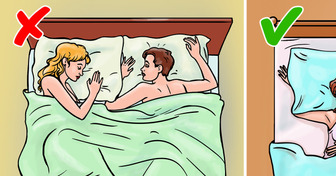
I Refuse to Keep Visiting My Husband’s Family—I’m the Breadwinner, Not Him

10 Jaw-Dropping Stories Where One Moment Changed Everything
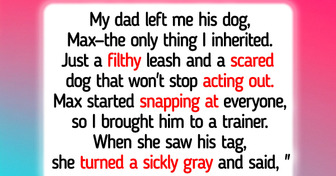
My Brother Has No Kids but Refuses to Share His Inheritance With Mine—I’m Furious

I Refuse to Give My Retirement Savings to My Adult Son—I’m Not Responsible for His Failures
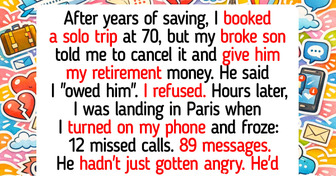
10 Moments Where Kindness Didn’t Argue—It Acted

11 People Who Chose Humanity Over Hatred in the Darkest Moments

I Refuse to Let My Brother’s Girlfriend Control My House—I Put a Stop to It Fast

I Won’t Sacrifice My Last Good Years Because My Son Refuses to Grow Up
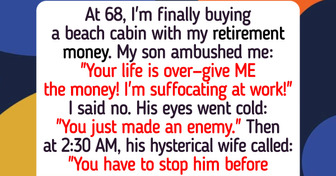
My Family Excluded My Girlfriend From Christmas Because We’re Not Married

My Family Always Prioritized My Sister—Then Expected Me to Help Them With Medical Bills
